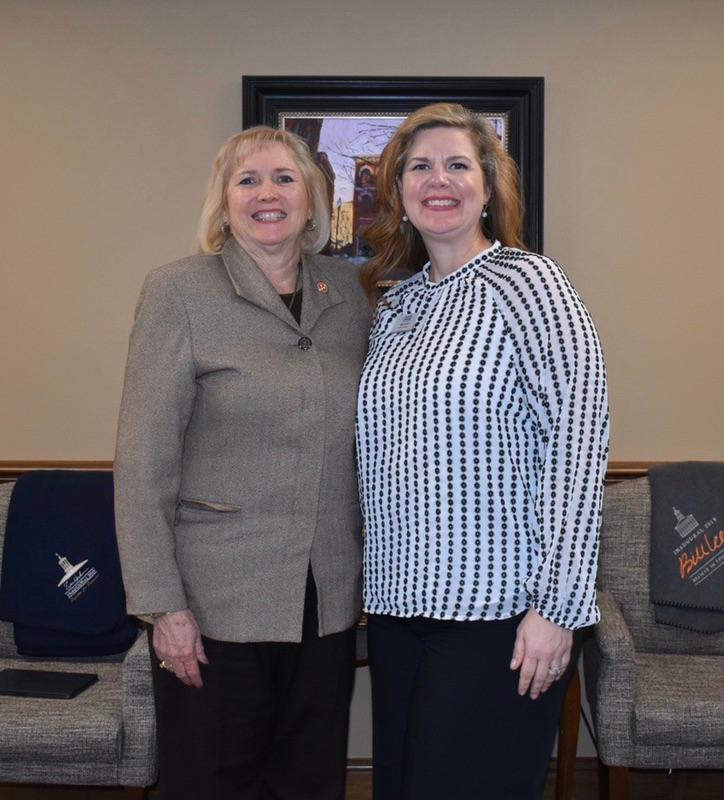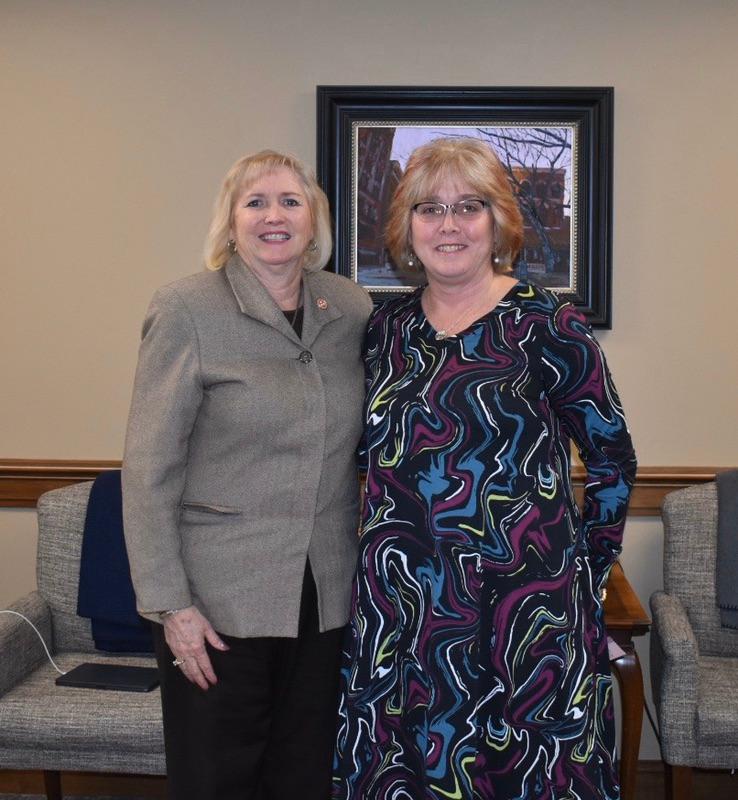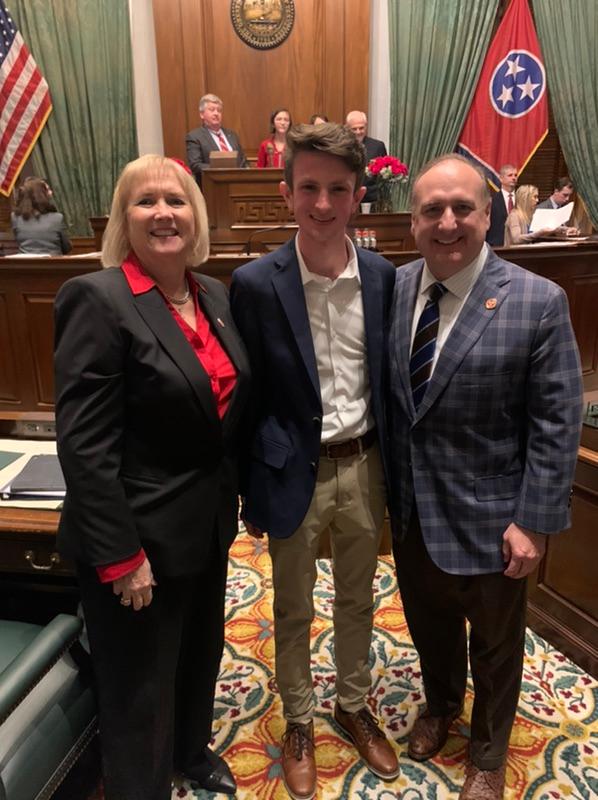
The Update on the COVID-19 below is current as of today. It is a very fluid crisis as all state of emergencies are. All of our state departments will be working to help our fellow Tennesseans through this

Governor Lee declares state of emergency to marshal state and federal resources to combat COVID-19
Governor Bill Lee issued an executive order this week declaring a state of emergency in Tennessee in order to facilitate the medical response needed to combat the spread of COVID-19, which is also known as coronavirus. The order will also help Tennessee access federal funding to provide more resources to respond to citizens’ needs.
The executive order listed 13 provisions to more effectively mobilize resources inside and outside of the state to fight the virus strain which was declared a global pandemic this week. Among other action, the order permits health care professionals licensed in other states to provide health care services in Tennessee related to COVID-19; allows pharmacists to dispense an extra 30-day supply of maintenance prescriptions as needed in response to COVID-19; allows health care professionals to provide localized treatment to patients in temporary residences; expands testing sites for COVID-19; allows the construction of temporary health care structures in response to COVID-19; implements price gouging protections on medical and emergency supplies.
This follows a tough week for Tennesseans with widespread destruction in three counties and substantial damage in several others due to the tornadoes which ripped through the state last Tuesday.
“Today’s action will move us into a position to utilize additional emergency funds as needed and relax provisions of certain laws to provide the flexibility needed to respond to this disease,” said Gov. Lee. “While the risk to the general public remains low, we encourage all Tennesseans to exercise caution and maintain good hygiene practices as there are serious risks to our vulnerable populations.”
Lt. Governor Randy McNally and House Speaker Cameron Sexton issued a statement on Friday regarding a temporary adjustment to public access at the Cordell Hull Legislative Office Building:
“Governor Lee continues to take a thoughtful approach to containing the possible spread of COVID-19. We applaud his steps to better protect the public’s health. Beginning Monday, March 16, we will limit access to the Cordell Hull Building out of an abundance of caution. Access is prohibited to everyone except elected members, staff and members of the media until further notice. However, the citizens of Tennessee will still be able to access the work they have elected us to do through the livestreaming services available on our website.
We must take any and all reasonable steps to slow the spread of COVID-19. It is imperative the public’s health be prioritized and economic disruption minimized. We will continue to evaluate this situation, remain in contact with Governor Lee, the state’s health leaders, and the Centers for Disease Control (CDC) to determine whether additional action is needed.”
Governor Lee also has closed the Capitol to visitors and tours, has halted all non-essential business travel for state employees and for them to work from home if they are trained and certified to do so. He also heavily discouraged groups of 250 or more from gathering.
On Monday, Department of Commerce and Insurance Commissioner Hodgen Mainda told members of the Senate Commerce and Labor Committee that Governor Lee has made preparedness and a swift response to the potential spread of coronavirus top priorities. “As part of our mission, we have requested Tennessee’s health carriers to assist in facilitating prevention measures, including covering the cost of coronavirus testing, in order for our state to successfully fight the spread of this disease,” Mainda said. He noted the department has received positive responses from health carriers in Tennessee.
President Trump and Vice President Pence also met with executives from America’s largest health insurance companies earlier this week. According to the Vice President, there is widespread agreement among health carriers to waive copays on coronavirus testing and extend coverage for treatment of the virus in their benefit plans. Insurers also agreed to cover telemedicine services, which will allow all patients, particularly among the vulnerable senior population, to be treated without feeling the need to go to a hospital or doctor’s office. Medicare and Medicaid announced recently that beneficiaries will have coronavirus testing and treatment covered.
State officials are urging those with coronavirus symptoms to call ahead to your doctor’s office before visiting. Here is a list of recommendations from the Center for Disease Control and Prevention. Citizens of Tennessee should visit the Tennessee Department of Health’s website to get the most up-to-date information. The Tennessee Coronavirus Public Information Line (1-877-857-2945) is available from 10 a.m. to 10 p.m. (CT) daily.

I enjoyed visiting with Alzheimer’s Tennessee during their day on the hill
Senate Judiciary Committee passes major criminal justice reform legislation
The Senate Judiciary Committee passed major criminal justice reform legislation this week with approval of two key bills in Governor Bill Lee’s legislative package. This includes legislation streamlining and appropriately leveraging alternatives to incarceration, namely Recovery Courts and felony probation.
There are currently 30,000 incarcerated for felonies in state prisons and jails, with our corrections budget now costing taxpayers in excess of $1 billion annually. Fifty percent will return, making Tennessee’s recidivism rate the highest in the Southeast. This legislation aims to addresses this problem by helping these individuals with a pathway to a productive life beyond crime, with the ultimate goal of making Tennessee a safer state.
Tennessee’s high incarceration rates are fueled by non-violent drug and property offenses which have increased the state’s custody population growth by more than 50 percent since 2009. Senate Bill 2195 expands Tennessee’s successful Recovery Court System, which is a specialized diversion program focused on comprehensive supervision, treatment services and immediate sanctions and incentives for substance abuse offenders. The proposal broadens eligibility for Recovery Courts to include misdemeanors, except domestic assault offenders, and encourages judges to consider available sentencing alternatives.
With $1.7 million in additional funding proposed in the budget, Recovery Courts will expand capacity by 20 percent and serve an additional 500 Tennesseans each year. Individuals who are successfully diverted through this programming are estimated to save the state an average of more than $20,000 per individual in recovered correction costs each year.
The legislation also addresses the high mental health caseload in Tennessee Department of Correction (TDOC) facilities. Prisoners treated for mental illness have increased 26 percent from 2016 to 2019, with nearly 8,000 individuals currently being treated. In addition, the number of inmates diagnosed with serious persistent mental illness has nearly tripled over the past 10 years. The legislation requires courts to consider use of available sentencing alternatives for defendants with a documented history of behavioral health problems.
The legislation also highlights Day Reporting Centers as an alternative for judges to use instead of incarceration. These centers serve as alternatives to incarceration by placing eligible participants in structured and intensive outpatient programs. The programs provide resources and services to offenders to assist them as they work towards becoming productive citizens in their communities. There are currently six centers across the state, with two additional centers and extended hours funded in the governor’s proposed budget. Approximately 74 percent of admissions are for non-violent offenses, with property offenses as the most common reason for admission.
Finally, the legislation clarifies criteria for revoking community supervision status, updates the permitted amount of time that an individual can be sentenced to probation or have their supervision extended, and limits the ability to revoke supervision for non-criminal violations of conditions, also known as technical violations.
Re-Entry Stabilization Act seeks to improve public safety through a multi-pronged approach — The second bill, called the Re-Entry Stabilization Act of 2020, is a multi-pronged approach to help improve public safety and facilitate positive outcomes for those leaving incarceration. Nearly 40 percent of the felony population complete their sentence, returning to the community without oversight. Senate Bill 2194 establishes mandatory re-entry supervision, so that all individuals exiting state custody will have a minimum of one year supervised re-entry integration. The mandatory supervision does not create parole eligibility for those who are not eligible, including those convicted to life without parole or to the death penalty.
The proposal establishes the Office of Re-Entry Services, which will act as a clearinghouse of existing resources, primarily focusing on providing services to those whose sentences are expiring and are reentering the community. Similarly, it addresses the parole process, incorporating the findings of a validated risk-and-needs assessment into the review process. In doing this, the Board of Parole is better supported in making data driven decisions regarding parole and protecting public safety, while also improving transparency for both victims and perpetrators.
To facilitate a successful reentry for prisoners into communities, the Re-Entry Stabilization Act seeks to advance employment outcomes by improving the certificate of employability process, clarifying occupational licensing for those with a criminal history, and granting limited employer liability to businesses who make good faith hires within certain criteria.
In addition, the proposal standardizes parole revocation practices for technical violations. Approximately 40 percent of those prisoners rearrested land back in prison because they broke their parole on technical violations, not for committing new crimes.
Tennessee ranks number one in violent crime rate when compared to our neighbors in ten surrounding states. This legislation focuses on improving our parole processes, improving oversight for those leaving jail and prison, and expanding opportunities for better outcomes for prisoners once they return to the community.
Lawmakers advance legislation to ensure sex offenders have expert supervision during sentences – Continuing lawmakers’ efforts to ensure public safety, the Senate Judiciary Committee approved legislation this week to ensure sex offenders are supervised by specialized officers with extensive training to deal with sex offenders and the inherent, specific risks they pose. In contrast, community correction agencies are neither trained nor have expertise in dealing with sex offender populations. Senate Bill 2152 will ensure that these high-risk populations will be supervised by the Tennessee Department of Corrections to the extent they are involved in the criminal justice system.
Legislation seeks to reduce high recidivism rates in rural counties – The Senate State and Local Government Committee advanced legislation seeking to encourage rural and smaller Tennessee counties to offer recidivism reduction opportunities for inmates through enhanced jail per diem. Senate Bill 2108 would provide an additional $5 per day for prisoners in counties under the population of 336,000 participating in approved recidivism reduction programs. The program could focus on education, vocational training, mental health, substance abuse rehabilitations, building healthy relationships, or any other program shown by evidence to reduce recidivism and increase the likelihood of successful re-entry.
Roughly half of county jails in Tennessee are over 100 percent of their capacity according to Department of Corrections’ reports. County jails can have up to an 80 percent recidivism rate compared with state-run jails which have a 48 – 51 percent recidivism rate. Large urban counties generally have recidivism programs in place, but many rural counties do not. This legislation seeks to help rural counties secure the resources necessary to implement programs that positively affect recidivism rates, saving counties money and improving public safety.

Ellie Kittrell with the Muse updated me on their wonderful educational programs for area youth

Dr. Ken Bielak recently was our Doctor of the Day
for the Legislature
Tennessee Responsible Borrowing Initiative Act passes Senate to help students avoid unnecessary debt
Legislation requiring public higher education institutions to provide students with important financial information to help them better evaluate the impact of indebtedness passed the Senate on Thursday. Senate Bill 2503 provides that when a student is finalizing their acceptance of a financial aid package, the institution must provide them with the net cost in an interactive loan scenario calculator, along with pertinent information on responsible student borrowing.
The total amount of student loan debt in the U.S. is $1.47 trillion as of the end of 2018, which exceeds the amount borrowed for credit cards or auto loans. The average student in the United States graduates with about $27,000 of debt, while approximately 45 percent of Tennessee students graduate with about $25,000 of debt.
The proposal calls for colleges and universities to inform students about the total cost of attendance, the amount per year of grants and scholarships awarded to them, and the estimated net cost after deducting these awards. In addition, the student must be provided information regarding resources available to them relative to financial planning and loan repayment obligations, and responsible borrowing.
The bill follows passage of the Tuition Transparency and Accountability Act in 2018. The law provided more transparency and accountability when it comes to tuition and fee hikes at the state’s colleges and universities. It provided that any tuition increase must be substantiated by stating the amount of increase, the reason for the increase, and any steps that may have been taken to control it.
In other news…
Legislation to allow personal delivery devices on pedestrian walkways passes Senate— A bill allowing delivery robots to operate at low speeds on sidewalks and crosswalks in Tennessee has been approved by the Tennessee Senate. The robots operating under Senate Bill 2836 won’t be able to exceed 10 miles per hour and must be equipped with a braking system to come to a controlled stop. The robots have sensors that stop them when approaching a person, animal, or item. They would only operate in pedestrian areas and must be clearly marked, including contact information. The proposed law does not preempt local governments’ ability to regulate the personnel delivery devices if necessary for public safety.
Senate votes to continue critical funds to support hospitals – Members of the Senate Health and Welfare Committee voted this week to continue the hospital assessment adopted since 2010 to prevent potentially catastrophic cuts to Tennessee hospitals. The hospitals asked the General Assembly to enact the coverage assessment for another year in order to raise almost $600 million in state funds, which in turn allows Tennessee to draw down $1.1 billion in federal matching funds. The action prevents more than $1.7 billion in potentially catastrophic TennCare cuts from taking effect on July 1, 2020.
The critical funds are necessary to provide hospitals a portion of their unreimbursed TennCare costs. A few examples of programs, in addition to the reduction in payments to hospitals and health professionals, that would be affected without the assessment are: critical access hospitals; the Graduate Medical Education program, x-rays, physician office procedures, various therapies, and the enrollment cap for the medically needy. The legislation, Senate Bill 2202, now moves to the Senate Finance, Ways, and Means Committee for consideration.
Senate votes to authorize TDOC to contribute funds for funeral services if correctional employee is killed in the line of duty — The Senate voted this week to authorize the commissioner of the Tennessee Department of Correction (DOC) to contribute state funds of up to $2,000 toward the burial and funeral expenses of any correctional employee killed in the line of duty. Senate Bill 1578 now moves to the House of Representatives for action. Last year, Tennessee Department of Correction (TDOC) Administrator Debra Johnson was murdered in the line of duty by an inmate while on duty at the West Tennessee State Penitentiary.
Legislation calls for creation of Tennessee Equine Health Advisory Commission — Senate Bill 2874 was passed on final consideration in the Senate on Monday to create an advisory council to study best practices for equine health. It would address emerging equine diseases. Tennessee is sixth in the nation with equine population, and has a $1.4 billion direct and indirect impact to the state. The equine industry employs over 20,000 people according to the University of Tennessee Agriculture research. Members of the commission would not be compensated by state funds.
Bill allowing State Board of Education subpoena power for educator licensure investigations passes Senate—Legislation to allow the chairman of the Tennessee Board of Education the power to issue subpoenas for educator licensure investigations passed the Senate Monday night. Senate Bill 2260 is part of the efforts to protect students from teacher sexual misconduct or similar prohibited acts. The State Board of Education is responsible for hearing teacher licensure matters involved in such cases. The legislation allows the subpoena to be issued for the appearance of persons or the production of items relevant to the investigation, including video footage.
The General Assembly passed a series of bills in 2018 addressing teacher sexual misconduct after a comprehensive report from Tennessee Comptroller Justin Wilson revealed deficiencies in hiring practices for school personnel that could allow predators to slip through the cracks. The legislation works to keep sexual predators out of the classroom.
Senate approves Holly Bobo Act raising the minimum age for endangered child alerts — Legislation allowing the Tennessee Bureau of Investigation (TBI) to expand its missing and endangered child and young adult alert program to individuals under the age of 21 was approved by the full Senate this week. Senate Bill 2464 is named the “Holly Bobo Act” for a 20-year-old young woman who was kidnapped from her Darden, Tennessee home and murdered in 2011. Currently, endangered child alerts are issued for abduction of persons under the age of 18. In issuing an Endangered Child Alert, which is distinct from the America’s Missing Broadcast Emergency Response (AMBER) Alert, the TBI notifies local media in specific regions of the state about the missing person, along with any additional information which is available. They also share the information on social media. The National Crime Information Center claims that 73 percent of missing persons are 20 years of age or under.
Legislation joins Tennessee in Interstate Driver License Compact — Legislation passed the full Senate joining Tennessee with 42 other states in an interstate Driver License Compact. The compact is used by states to exchange information regarding driver license revocations or suspensions due to major traffic violations by non-residents. The offenses are then forwarded to the home state where the person is licensed. The compact’s theme is “one driver, one license, one record.”
Senate Bill 1643, which I was the prime sponsor, requires the state to report convictions to an offender’s home state when it involves manslaughter, negligent homicide, driving under the influence of drugs or alcohol, and failure to stop and render aid in when a motor vehicle accident results in the death or serious injury of another. It also applies to offenders with felony convictions when a motor vehicle is used in the commission of a crime. The licensing authority in the compact’s party state may not issue a license to an applicant if the individual has been suspended or revoked in a compact party state and the period of termination has not expired. After one year, the applicant can reapply for a driver’s license, with the compact state’s licensing authority. The applicant’s eligibility for a license is determined through an investigation looking at whether or not it is safe to allow them to drive.
Legislation to help address shortage of teachers unanimously passes Senate — On Monday night, the Senate unanimously approved legislation to help Local Education Agencies (LEAs) fund a “Grow Your Own” scholarship program to train high school students and non-teaching staff to become certified teachers in a three-year program at a higher education institution. The Grow Your Own Program has been implemented in Clarksville Montgomery County Schools in partnership with Austin Peay State University and has proven to be an effective pipeline for LEAs to fill open teaching positions. Last year, there were 1,123 teacher vacancies reported in Tennessee, leaving over 20,000 students without a certified teacher.
Senate Bill 1790 authorizes the commissioner of education to grant a waiver to a requesting LEA exempting them the average class size standards to assist the LEA in funding a Grow Your Own Program. By increasing the class size across the district by one or two students, districts can significantly reduce the number of teaching positions and use those savings to develop their own teachers.
Health Committee passes resolution urging Medicaid Waiver for DIDD Choices Program – The Senate Health and Welfare Committee approved a resolution this week urging TennCare to submit a waiver amendment to Centers for Medicare and Medicaid Services (CMS) that would make changes to home and community-based services offered through TennCare for the state’s intellectual and developmentally disabled population. Because each individual’s needs are different, in March 2019, CMS relaxed the criteria for services that can be offered through TennCare’s Employment and Community First CHOICES (ECF) program. This allows states to have flexibility regarding service settings. This flexibility would enable individuals with intellectual and developmental disabilities the freedom to choose a setting which best meets their needs.
Senate Joint Resolution 879 stresses the importance of person-centered home and community-based services that provide the most integrated setting appropriate for each individual. If granted, the waiver would require TennCare to make non-contracted providers eligible for consumer direction and reimbursement for qualifying home and community-based services.
Tennessee to issue new license plate to commemorate 100th anniversary of women’s suffrage — Legislation providing for the issuance of a new state license plate to commemorate the 100th anniversary of women’s suffrage passed the Senate this week. Funds from the plate will be allocated to the historic society to support educational research activities and events celebrating the anniversary. Senate Bill 2692 is pending action in the House of Representatives. Similarly, the Senate State and Local Government approved Senate Bill 2635 designating August 18th of each year as Women’s Suffrage Day.
The Tennessee General Assembly played a critical role in granting women the right to vote. On August 18, 1920 Tennessee became the 36th state to ratify the 19th Amendment. Rep. Harry T. Burn changed his vote breaking a tie in the House of Representatives making history for the state and the entire country.
Senate approves legislation to expand family life education in public schools – On Thursday, the Senate approved legislation supporting pro-family education in public schools. Senate Bill 2089 would require all 95 counties in the state to create and implement a family life curriculum. Currently, only counties which have more than 19.5 pregnancies per 1,000 females ages 15-17 are required to implement family life programs that meet certain standards. This legislation expands these requirements to all local education agencies (LEAs). In addition, the proposal prohibits anyone from making abortion referrals or otherwise advocating for – or encouraging – abortion while they are present on school property.
Legislation aims to reduce effects of Neonatal Abstinence Syndrome in Tennessee — The full Senate approved legislation this week aimed at reducing the risks and effects of Neonatal Abstinence Syndrome (NAS) in Tennessee. NAS is a condition in which a baby has withdrawal symptoms after being exposed to certain substances, such as medications or illicit drugs used by the mother during pregnancy.
Senate Bill 2552 calls for the Department of Health, Department of Mental Health and Substance Abuse and TennCare to develop educational materials for providers and facilities where medication-assisted treatment, including treatment involving controlled substances, is prescribed or provided. The educational materials will provide information regarding access to and availability of family planning services and contraception, the risks and effects of NAS, and approaches to client-centered counseling.

Sherry Witt, County Clerk, and Nick McBride, Register of Deeds, stopped by for a visit

Trudy Durham, Island Home Park Health & Rehab, visited during the TN Health Care Association Day on the Hill

Knoxville Habitat for Humanity had a great fundraiser for their Women’s Build

I always enjoy helping out with the O’Connor Center’s Pancake Breakfast. I was joined by District Attorney General Charme Allen and Brad Anders, 911

Chairman Paul Bailey and I hosted Ocean Edwards, Farragut High School, as our Page for the Day
For information on State Senators including phone numbers and email addresses, click Tennessee State Senators.
For House members, click Tennessee House Members
For all other information on the General Assembly including legislation, schedules and videos, click Tennessee General Assembly
As always thank you for continued support!
Sincerely,
Becky Massey
District 6 Senator
615-741-1648.
